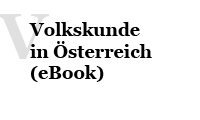Für den 10. internationalen SIEF Kongress „People Make Places – ways of feeling the world“ (Lissabon, 17.-21.4.2011) haben Prof. Dr. Alexa Färber und Beate Binder einen Panel-Vorschlag eingereicht, für den sie noch Beiträger/-innen suchen.
Unter dem Titel „How do places make people? Examining the relationship between urben imaginary and muslim live in European cities“ möchten sie aus der Perspektive der Stadtanthropologie die Frage stellen, inwiefern Städte mit ihren (historischen) Imagniarien die aktuelle Aneignung von städtischen Räumen durch Muslime prägen und inwiefern translokale muslimische Netzwerke auf diese städitschen Besonderheiten Einfluss nehmen.
Über Beitragsvorschläge würden sie sich freuen hr und bitten neben der Anmeldung über die Homepage der SIEF (http://www.nomadit.co.uk/sief/sief2011/panels.php5?PanelID=787) auch um kurze Nachricht an
beate.binder[at]rz.hu-berlin.de
alexa.faerber[at]rz.hu-berlin.de.
Die Anmeldung erfolgt ansonsten über die Homepage der SIEF. Der Call for Papers ist bis zum 15. Oktober 2010 geöffnet – die Zusammensetzung des Panels erfolgt aus einer Auswahl der angemeldeten Beiträge.
Auf der Kongress-Homepage http://www.nomadit.co.uk/sief/sief2011/ sind weitere Informationen zur Veranstaltung und zum Call for Papers zu finden.
Hier der Call for Papers zu ihrem Panel im Worlaut:
How do places make people? Examining the relationship between urban imaginary and Muslim live in European cities
In this panel we want to address the question of shaping lives with respect to actual expressions and representations of Islam in European cities: In which ways are urban Muslim lives shaped by local urban imaginaries on the one hand and translocal Muslim networks on the other hand? With this double perspective we want to bring together two contradictory research agendas:
1. the anthropology of the city with its programme to work on the specific character of cities argues that the city forms an entity which is accumulated in its imaginary representation(s).
2. focusing on the translocal relatedness of those living in cities – and these networks (material or virtual) make it impossible to define the city as an entity whereas “urbanity” is expressed in practices.
While the panel aims at discussing these approaches to urban phenomena together and with respect to the specific realm of the lives of Muslims in European cities and their material expressions it may address several related questions:
In which way do Muslims and their representations within cities shape/influence the imaginary of cities? Do translocal Muslim networks connect locally to the specific character of a city and when so, in which way?
Is it possible to identify different urban styles of Islam in European cities? How do they relate to the imaginary of the cities as their memories? In which way are these memories and representations structured by social, gender, sex and other categorizations of those citizens who identify as Muslims? And how do these configurations shape the realm of participation and exclusion in cities?
We invite researchers to this panel who work in the field of urban studies and are interested in discussing the interrelatedness of place, translocality and the lives of a religious minority in Europe and their material expressions.












